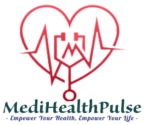1. Introduction
2. Understanding Hypertension
3. Changes in Lifestyle for Managing Hypertension
4. Medications for the Management of Hypertension
5. Importance of Regular Monitoring and Physician Direction
6. Other Hypertension Management Strategies
7. Discussion
8. FAQs
1. Introduction
Hypertension, also known as high blood pressure, is a prevalent condition that affects millions of people around the world. It can lead to serious health complications, including heart disease, stroke, and kidney damage, if left untreated. This article will discuss the significance of lifestyle modifications and medications in the management of hypertension, as well as the significance of regular monitoring and the guidance of a healthcare professional.
2. Understanding Hypertension
When the force of blood against the arterial walls is consistently too great, hypertension occurs. This elevated blood pressure can harm blood vessels and strain the heart, thereby increasing the risk of cardiovascular diseases. Primary hypertension (no identifiable cause) is distinguishable from secondary hypertension (caused by an underlying condition or medication). It is essential to collaborate closely with your healthcare provider to determine the optimal blood pressure management strategy.
3. Changes in Lifestyle for Managing Hypertension
Changes in lifestyle can help effectively manage hypertension. Among the most efficient modifications are:
- A diet rich in fruits, vegetables, whole grains, lean proteins, and low-fat dairy products can assist in lowering blood pressure. Also essential is limiting sodium, processed foods, and saturated fats.
- Regularly engaging in physical activity for at least 150 minutes per week, such as walking, swimming, or cycling, can help reduce blood pressure.
- Loss of excess weight and maintenance of a healthy weight can significantly reduce blood pressure.
- Consuming alcohol in moderation or abstaining entirely can aid in the prevention of hypertension.
- Smoking damages blood vessels and raises the risk of hypertension. Cessation of tobacco use can reduce blood pressure and improve overall health.
- Relaxation techniques, such as deep breathing, meditation, and yoga, can help reduce stress and blood pressure.
4. Medications for the Management of Hypertension
If lifestyle modifications are insufficient to control hypertension, your doctor may prescribe medications. Examples of commonly prescribed drugs include:
- Diuretics aid in the elimination of excess sodium and water from the body, thereby reducing blood volume and blood pressure.
- Beta-blockers: These medications lower blood pressure by decreasing the heart rate and the force of the heart’s contractions.
- ACE inhibitors: These medications relax blood vessels by inhibiting the production of the hormone angiotensin II.
- Calcium channel blockers relax blood vessels by preventing calcium from entering smooth muscle cells, resulting in reduced blood pressure.
5. Importance of Regular Monitoring and Physician Direction
Regular blood pressure monitoring is essential for effective hypertension management. Your healthcare provider can assess the efficacy of your treatment plan and make any necessary adjustments during routine checkups. It is essential to adhere to your healthcare provider’s instructions and report any side effects or concerns immediately.
6. Other Hypertension Management Strategies
In addition to lifestyle modifications and medications, the management of hypertension may also involve the following:
– Limiting caffeine consumption: Limiting caffeine consumption may assist certain individuals in lowering their blood pressure.
– Sleeping enough: Poor sleep quality or sleep deprivation can contribute to hypertension. The prioritization of sleep and the creation of a healthy sleep environment can aid in the management of hypertension.
7. Discussion
It is essential to control hypertension in order to prevent serious health complications. Under the guidance of a healthcare professional, a combination of lifestyle modifications, medications, and regular monitoring can help effectively control blood pressure and promote overall health.
8. Frequently Asked Questions
1. Q: Can I discontinue my hypertension medication once my blood pressure is under control? Even if your blood pressure readings are within the normal range, it is crucial that you continue taking your prescribed medication.
A – rise in blood pressure and an increased risk of complications may result from discontinuing medication without first consulting a physician. Always consult your physician before altering your medication regimen.
2. Q: Can lifestyle modifications alone be sufficient to manage hypertension?
A: In some instances, lifestyle modifications such as a healthy diet, regular exercise, maintaining a healthy weight, reducing alcohol consumption, quitting smoking, and managing stress can significantly aid in blood pressure management. However, each individual is unique, and medication may be necessary for some. Discussing this with your healthcare provider is recommended.
3. Q: How frequently should I check my blood pressure at home?
A: It depends on the severity of your hypertension and your physician’s recommendations. Some individuals may need to monitor their blood pressure daily, while others may only need to do so weekly or biweekly. Always follow your doctor’s instructions for home blood pressure monitoring.
4. Q: Do hypertension medications have side effects?
A: Yes, just like any other medication, those used to treat hypertension have the potential for side effects. Depending on the medication and the individual, these side effects can range from mild, such as dizziness or fatigue, to more severe. It is imperative to discuss any concerns or adverse effects with your healthcare provider.
5. Q: Could hypertension be treated?
A: Hypertension is a chronic condition that can typically be effectively managed with lifestyle modifications and medication, but it cannot be cured. The purpose of treatment is to alleviate symptoms and prevent complications, such as heart disease and stroke. Effective hypertension management requires routine monitoring and adherence to your healthcare provider’s instructions.
Reference
- American Heart Association – Hypertension: Website: https://www.heart.org/high-blood-pressure
- CDC – High Blood Pressure: Website: https://www.cdc.gov/bloodpressure/index.htm
- Mayo Clinic – High Blood Pressure (Hypertension): Website: https://www.mayoclinic.org/diseases-conditions/high-blood-pressure
- NHLBI – High Blood Pressure: Website: https://www.nhlbi.nih.gov/health-topics/high-blood-pressure








Hi, this is a comment.
To get started with moderating, editing, and deleting comments, please visit the Comments screen in the dashboard.
Commenter avatars come from Gravatar.